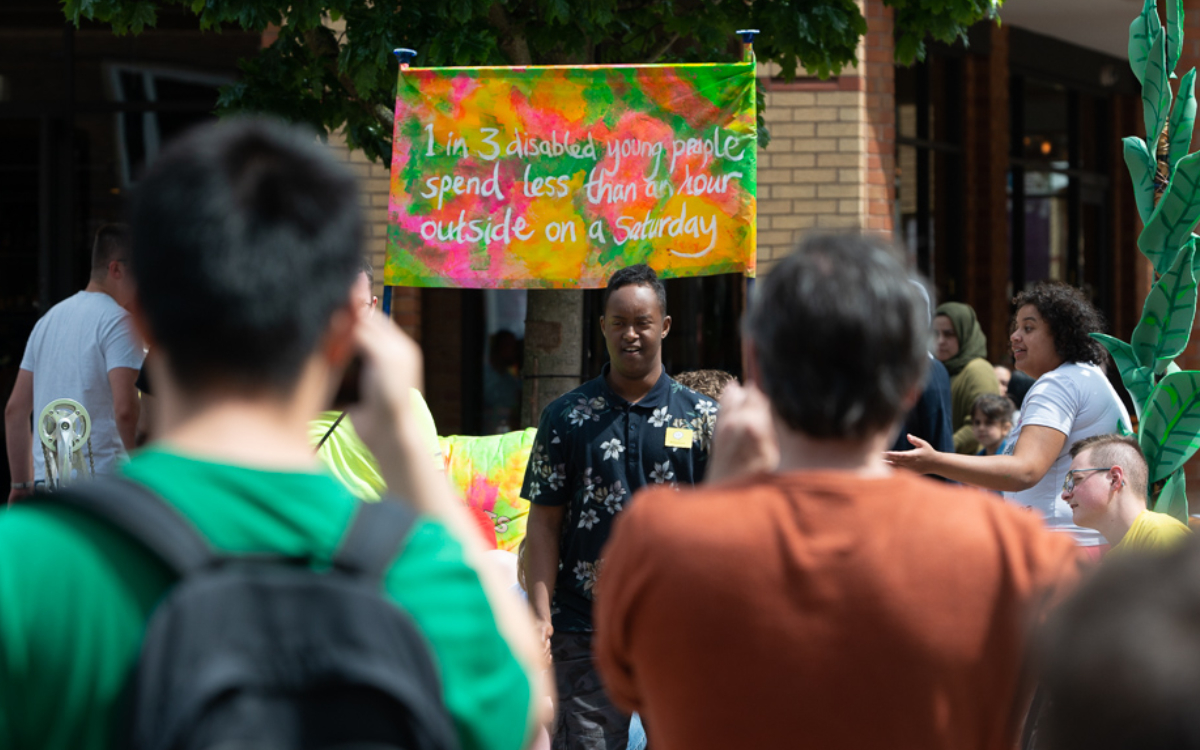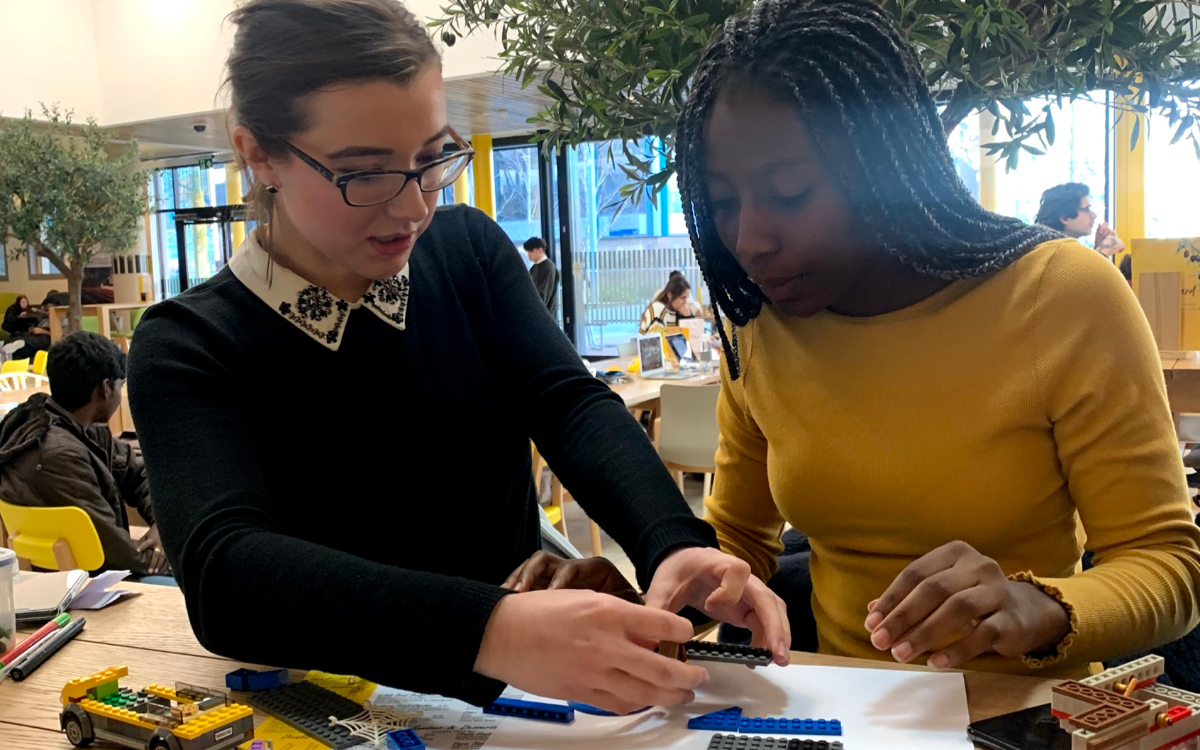Voices
Building Powerful Relationships
Breaking the rules of relationship building. One conversation at a time.
Stephanie Wong | 29 Mar 2021

CYA on the Sofa. Image credit: John Whitmore.
The practice of the relational 1-to-1 is the bedrock of community organising. It is how we build the relational power to win on the issues that matter to us. With so many people stating they are organisers now, as funders show more interest in its grassroots relationship-building methodologies, 1-to-1s are an excellent way of knowing whether someone is organising. If they are not being practised regularly, it is unlikely that organising is happening.
The relational meeting is a thirty- to thirty-five-minute opportunity …to focus deliberately upon another person, to seek out their talent, interest, energy, and vision…No matter how interesting it is, don’t violate the thirty-minute rule.
Community Organisers have been told 1-to-1s should fill our diaries, take no longer than 40 minutes and always face to face (before COVID-19). This is so the organiser can have multiple weekly conversations and keep busy people showing up.
How do you do that when the woman in front of you had a stroke when she was 13 and was left with a stammer and dysarthria, so it takes her three times as long to speak as anyone else? Hanging on her every word and welcoming the depth of her experiences of the inequalities she and others face. We embrace and appreciate the time it takes to hear her. That doesn’t fit into a 40-minute deadline.
This is an example of people inadvertently getting into discriminatory practices. Equally, if I were a Community Organiser, I might not fit a 1-to-1 into 40 minutes. It needs to be recognised that people with speech disorders aren’t always (or won’t always be) service users.
When you bring an accessibility lens to your practice, you realise for many of us, that isn’t work. When you have been ignored for so long, it can take time to trust and share your heart’s yearnings for your life and city. It may physically take longer to get your words out, or for others, it is short and frequent bursts of interaction without spoken word dominating but images and movement. All are noticed, and all are welcome. At Grapevine, traditional 1-to-1 conversations are met with a twist. Meeting busy people can look like:
A one-to-one while swimming …or walking around town while a community leader was on a scooter (non-electric!).

I have had a few 1-to-1s where we have either doodled together or made things. I’ve used lego to talk through ideas too.
Grapevine’s organisers are patient with lateness and no shows. Working with people with multiple and complex needs means people may change their mind, lives get disrupted or folks might feel too nervous on the day. Just like any of us can. Imagine if all of us acted with thoughtful pace rather than busy speed? Imagine the richness of conversations, the feeling of not being pressured but understood.
If we meet in a cafe, we find out in advance the name of the person serving that day so we can share it. I have sent a video of myself outside to show where the entrance is and what it looks like. I’ve chosen places where there isn’t necessarily an expectation to sit on the chair e.g. it’s okay to move furniture, sit on the floor, get up to walk around regularly.’
In traditional organising all 1-to-1s must end with an ask. Often that ask is to be introduced to more people, specifically in organiser tongue “Leaders and Followers”. People who can bring people with them. It is suggested that all of us are capable of doing this and while I believe this to be true, it is not always easy. This isn’t going to work for many of the people Grapevine wants to build power with those who have lived experience of isolation to lead. For most of these leaders it is their initial lack of relationships that is the challenge. Isolation is a deadly experience, or as Iona Lawrence explains:
Long before Covid-19 arrived, loneliness was fast becoming a leading crisis of the 21st century. We have long understood the crippling effects of loneliness: as bad for our health as 15 cigarettes a day, it robs us of perspective, leaving us cut out and cut off… and less embracing of the wider world.
So, the asks at Grapevine also look different. The asks are creative, and think of multiple ways other people can participate and contribute. The best way to do this is by letting people lead in how they want to participate. No membership models, lack of “followership”, or training attendance record excludes you. The focus is on personal gifts to forge ties with others.
One of our asks is to be a ‘detectorist’ to help us understand how connections, relationships and ideas develop to supersize our ability to end loneliness and isolation. This was the route in for Jo, who wasn’t sure what she could offer, if she had the time or who she could bring. Jo had been initiated into the movement when she played the role of a camerawoman armed with a cardboard video camera during a listening opportunity at the Godiva Festival.
Jo agreed to be a detectorist at Collaboration Station and offered to do the meet and greet as a less awkward way to meet people. She came back again and again. Jo is now one of the founding members of the Collaboration Station (a monthly night for Coventry locals to collaborate and develop ideas into community-led action). Jo then joined Changemaker University (CMU), a programme of learning to develop your organising and graduated six weeks later.
Our ask for Charley was to use his gifts to help the movement think about accessibility. He is one of the core team of New Vibes DJs who, pre-Covid-19 were working with local venues on a series of accessible nights. All that stopped with Covid-19. As a previous graduate of CMU, he is now working with the movement to advise on the accessibility of Changemaker University, offering solutions for a more inclusive curriculum. Charley has autism and learning disabilities and is used to a world of services. Note: we want to live in a world where this last sentence isn’t necessary.
Task
Reflection Questions
- How could you adapt your conversations to invite different ways for people to express themselves?
- How do play and joy show up in your practice?
- What could be your small act of defiance to the “rules of organising” or relationship-building norms that do not work for all of us?
This is the second in a series of posts about our work with Grapevine: